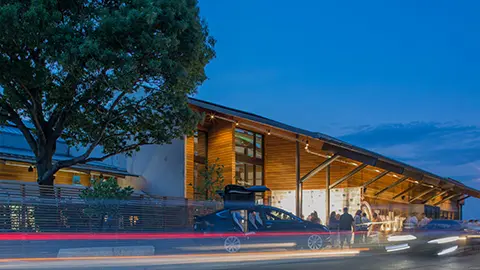Which Cars Will Use the Tesla Charging Port?
Earlier this year, a number of car brands announced that they would be adopting Tesla’s North American Charging Standard (NACS). The move gives customers of those brands access to Tesla’s network of high-speed Superchargers, which are generally known to be the most reliable, if not the fastest available. In time, these manufacturers have also said their vehicles will also adopt Tesla’s NACS charging port, which is smaller than the Combined Charging System (CCS) port used on most Tesla EVs.

Access to Fast, Reliable EV Charging
Why the switch? As electric car sales increase – and the market moves past early adopters willing to put up with a few charging foibles – charging station access and reliability are a prime concern for mainstream customers. With reports in the media about declining customer satisfaction with charging, and up to one in five charging sessions failing, access to reliable fast charging is now a serious issue. And Tesla’s lead in high-speed charging is well-known; the company has invested billions in building out a network of tens of thousands of chargers. Indeed, Superchargers currently represent over a third of the total U.S. high-speed charging network.
Furthermore, Tesla’s NACS charging port is more compact than the CCS port. High-speed charging, which on the CCS standard requires a separate cover to be uncovered for Level 3 chargers, is easier and more convenient. On the NACS standard, the same small plug works for Level 2 charging at home and Level 3 charging on a DC fast charger. Fortunately, adapters will make it easy for vehicles currently equipped with a CCS port to connect to an NACS port – and for many vehicles in 2023 and 2024, manufacturers will include an adapter for customers until their vehicles will be updated with the NACS port in 2025.

Which Brands Are Switching to the Tesla Port?
Which cars will be switching to the Tesla charging standard? The following manufacturers have made public announcements to provide Tesla Supercharger access starting in early 2024, using a plug adapter, with a commitment to switch to the NACS plug in 2025.
- Ford was one of the first automakers to announce a switch. The F-150 Lightning, Mustang Mach-E, E-Transit, and future EVs will use NACS.
- General Motors vehicles from Chevrolet, Cadillac, GMC, and Buick will adopt the NACS standard. GM’s Ultium architecture uses 800-volt technology to allow ultra-fast charging, but Tesla’s Superchargers currently run on 400-volt tech, meaning GM vehicles won’t maximize their charging speeds.
- Rivian has announced that the R1S and R1T will adopt the NACS standard, as well as the upcoming R2 models.
- In late June, Volvo and its sister company, Polestar, announced that vehicles like the XC40 Recharge and Polestar 2 would switch to NACS.
- Mercedes-Benz will adopt NACS for its EQB, EQE, EQE SUV, EQS, EQS SUV and upcoming models.
- The Nissan Ariya, the replacement for the Leaf, and future Nissan models will use NACS.
- Fisker, the California start-up, will use NACS for the Ocean, Pear, Ronin, and future models.
- Honda and Acura will use NACS for the Prologue and ZDX, both of which are built on shared technology with General Motors.
- Jaguar, which has plans to become an all-EV brand, will use NACS for all of its cars sold in North America.
- Hyundai and Genesis will move to NACS in 2025.
- BMW, Rolls-Royce, and Mini recently announced plans to switch to the Tesla standard starting in 2025, and will integrate payment functionality into their respective vehicles' apps.
- In mid-October, Toyota and Lexus also announced they will move to NACS.
- EV startup Lucid will transition the Air sedan and new Lucid Gravity to NACS starting in 2025.
There are a number of brands that are staying with the CCS port for now. These include Chrysler, Dodge, Jeep, and Ram; Kia; Volkswagen, Audi, and Porsche. All of these brands have said they are considering the NACS standard, however.

Good News if You Already Have an EV
What does the switch in charging standards for some brands mean for existing EV drivers? It’s actually good news. Starting in 2024, the purchase of a simple adapter should give EV drivers even more choice when it comes to high-speed charging – if you own a vehicle from one of the brands listed above, you’ll have access to way more chargers next year than you do now.
For charging networks like Chargepoint, Electrify America, and others that currently focus on the CCS standard, there will be some work involved to add NACS charging ports to their existing chargers, but almost all have announced that those additional ports are coming – meaning that Tesla owners will also have more options when it comes to public high-speed charging across the U.S.
EV Charging Is About to Get Even Better
A consortium of several automakers, including many of those listed above, have also banded together to build a high-speed charging network across the U.S. and Canada that will add a further 30,000 chargers starting in 2024 – which would double Americans’ access to high speed charging over the next few years.
If you’ve been thinking of switching to EV, but have been worried about charging, all of this news means that things are about to get a lot easier and better.













